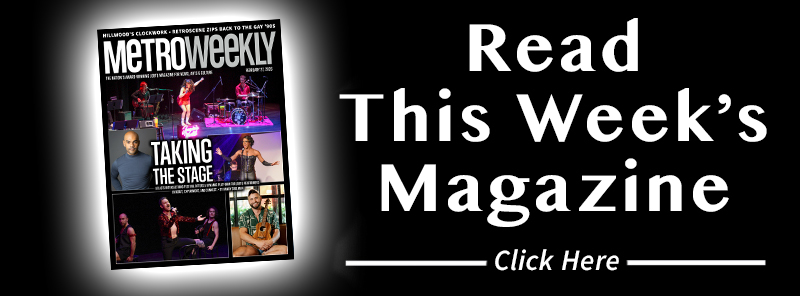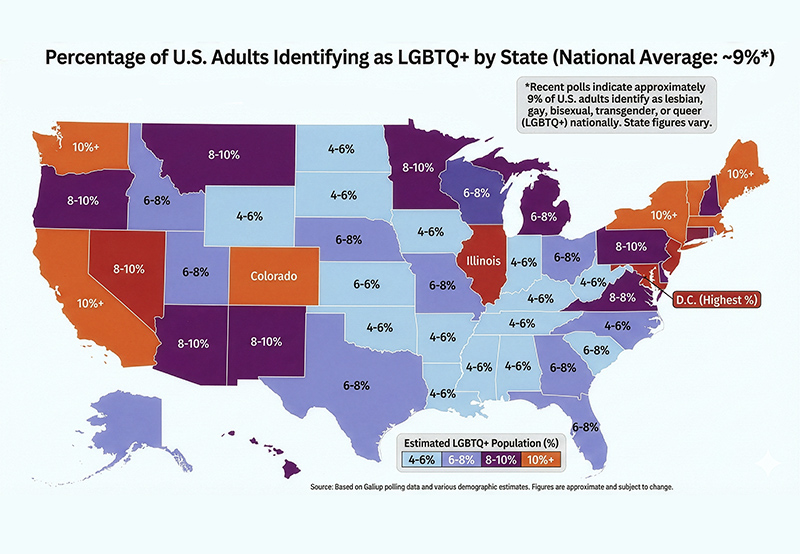SNAP Cuts Could Hit 2 Million LGBTQ Americans
A new Williams Institute report shows LGBTQ adults are more likely to rely on food assistance -- and could be disproportionately harmed by Republican-led efforts to slash SNAP funding.

A new report from the Williams Institute, an LGBTQ-focused think tank at UCLA School of Law, finds that 15% of LGBTQ adults — nearly 2.1 million people — received Supplemental Nutrition Assistance Program (SNAP) benefits in the past year.
The report arrives as Congress prepares to pass legislation backed by President Donald Trump that would make his 2017 tax cuts permanent. In exchange — particularly for high-income earners and corporations — the Republican-backed bill proposes significant cuts to domestic social safety net programs.
As reported by Axios, a Congressional Budget Office estimate provided to Senate Democrats projects the bill — which has passed the Senate and is expected to be approved by the House — would slash SNAP spending by 20%.
The bill also restricts taxes on health care providers used to fund Medicaid, and eliminates federal reimbursement to states, a move aimed at pressuring states to lower those taxes.
As a result, many states — including 41 that expanded Medicaid under the Affordable Care Act — are expected to slash their Medicaid rolls, likely leading to a loss of coverage for lower-income individuals who earn up to 138% of the federal poverty level. Cuts to Medicaid could force nearly 12 million people currently insured through the program off its rolls.
But as Axios notes, there’s significant overlap between SNAP and Medicaid recipients, with 30 million of the 38.3 million people who received SNAP benefits in 2022 also enrolled in Medicaid, according to estimates from KFF. As a result, many could face higher out-of-pocket health care costs while also spending more on food — likely prompting some to forgo coverage altogether to save money.
Cuts to food assistance programs are likely to place greater financial strain on LGBTQ people than on their cisgender, heterosexual counterparts. According to the Williams Institute, 18% of LGBTQ adults experienced food insecurity in the past year, compared to 14% of non-LGBTQ adults.
The study found that 15% of LGBTQ adults relied on SNAP benefits, compared to 11% of non-LGBTQ adults — a gap linked to higher rates of poverty and disability in the LGBTQ community. Nearly 7 in 10 LGBTQ SNAP recipients had incomes under $35,000, 66% were living with a disability, and nearly half (49%) had a child under 18 in the household.
Of the nearly 2.1 million LGBTQ adults receiving SNAP benefits, the Williams Institute estimates that 1.3 million are living with a disability. About 1.3 million are lesbian and bisexual women, and 900,000 are LGBTQ adults with children younger than 18. Another 500,000 are cisgender gay and bisexual men, and 250,000 are transgender adults.
“Research shows that LGBT adults and youth are at higher risk of food insecurity compared to non-LGBT people,” Brad Sears, Distinguished Senior Scholar of Law and Policy at the Williams Institute and lead author of the study, said in a statement.
“Reducing SNAP benefits would disproportionately affect cisgender lesbian and bisexual women, transgender individuals, and LGBT people of color, who are more likely to face poverty and depend on food assistance,” he added.
The Trump-backed budget reconciliation bill would also expand work requirements for those who meet the income threshold and seek benefits. Able-bodied adults under age 65 would have to work at least 80 hours per month, with exceptions for those with children under age 10.
But the Williams Institute argues that expanding work requirements would create additional barriers for LGBTQ adults who would otherwise qualify for SNAP. Conservatives frequently contend that the program is rife with fraud, waste, and abuse, and that many able-bodied recipients without children are shirking existing work rules.
According to the Williams Institute, more than 9 in 10 LGBTQ adults receiving SNAP benefits — 91% — were either currently working, had worked in the past year, or were students, homemakers, retirees, or physically unable to work. Specifically, 42% were employed, 21% were unable to work, 9% were homemakers, 8% were students, 6% had worked in the past year, and 5% were retirees.
With food and health care support on the chopping block, LGBTQ adults — especially women, trans people, and families with kids — are staring down even steeper financial cliffs. If Congress moves ahead with plans to gut essential safety nets, the fallout won’t be theoretical. It’ll be felt in empty fridges, skipped prescriptions, and communities pushed even further to the margins.
Support Metro Weekly’s Journalism
These are challenging times for news organizations. And yet it’s crucial we stay active and provide vital resources and information to both our local readers and the world. So won’t you please take a moment and consider supporting Metro Weekly with a membership? For as little as $5 a month, you can help ensure Metro Weekly magazine and MetroWeekly.com remain free, viable resources as we provide the best, most diverse, culturally-resonant LGBTQ coverage in both the D.C. region and around the world. Memberships come with exclusive perks and discounts, your own personal digital delivery of each week’s magazine (and an archive), access to our Member's Lounge when it launches this fall, and exclusive members-only items like Metro Weekly Membership Mugs and Tote Bags! Check out all our membership levels here and please join us today!


























You must be logged in to post a comment.